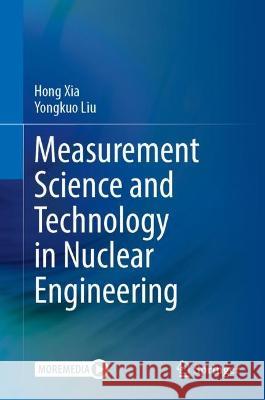Measurement Science and Technology in Nuclear Engineering » książka
topmenu
Measurement Science and Technology in Nuclear Engineering
ISBN-13: 9789819912797 / Angielski / Mixed media product / 2024
This book highlights the fundamentals and advances in measurement science and technology applied in nuclear power engineering. Inspection of main parameters is an essential part of the operation and control of nuclear power plants. Measurement science and technology in nuclear engineering have experienced fast upgrades with the rapid advancements in computer science, sensors, lasers, and other related technologies. The book not only describes basic theories and widely used techniques but also presents novel experimental findings, newly applied techniques, and future trends that emerge with the higher and more specialized requirements of today’s nuclear power plants and other nuclear projects. The book serves as a valuable information source for scientists and a good handbook for engineers. It also contains well-arranged questions and exercises after each chapter, which makes it an excellent textbook for undergraduate and graduate students in nuclear science and technology.
Additional questions and answers via app: Download the Springer Nature Flashcards app free of charge and use exclusive additional material to test your knowledge.











